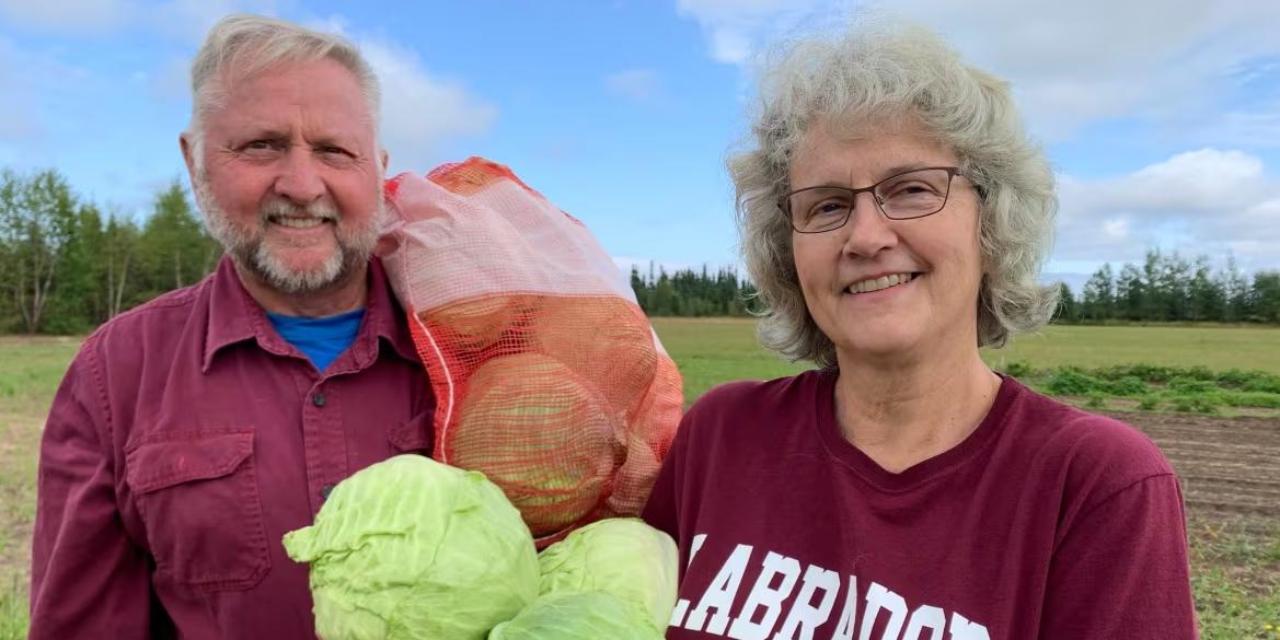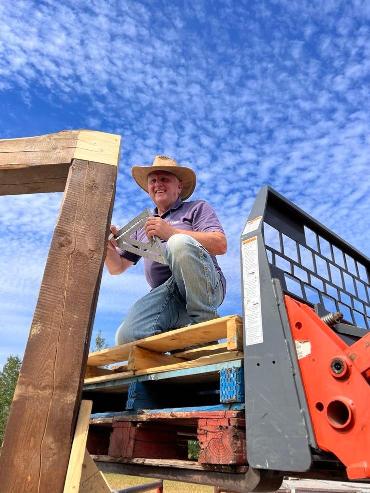A growing contribution
The Pye Centre for Northern Boreal Food Systems is an idea planted in the heart of Labrador.
And Lem Seaward is the resident farmer rolling up his sleeves to nurture that idea.
For Mr. Seaward, this adventure is both a foray into new territory and a communal inheritance.
Frank and Joyce Pye owned and operated the farm on Mud Lake Road in Happy Valley-Goose Bay for more than 30 years. Memorial University, through the leadership of the Labrador Campus, leased the 80-acre farm in 2019, and the centre was renamed to honour the Pye’s agricultural legacy.
At the time, Ms. Pye hoped that “Like a phoenix, the farm will be reborn into something new and different.”
And under Mr. Seaward’s guidance, the Pye Centre has become more than a farm — it’s an incubator for northern agriculture and a hub for community engagement.
Born and raised in Labrador, he brings over 20 years of farming experience to the Pye Centre, and he’s committed himself to a mandate that fosters food sovereignty and offers practical education to the people of Labrador.
In a region where short growing seasons, cold temperatures and remote locations pose unique challenges, the work requires ingenuity, resilience and a deep respect for the land.
Mr. Seaward’s hands-on experience allows him to navigate these challenges with the help of Memorial University students and faculty and with researchers from Agriculture and Agrifoods Canada.
The farm produces a variety of vegetables, from hardy root crops like carrots and potatoes to leafy greens that can thrive in short summers.
Guided by research, Mr. Seaward puts science to the test.

Lem and Darla Seaward display the Pye Centre’s bumper crop of cabbages in 2023. Photo by Heather Barrett courtesy of CBC.
For example, he experiments with different varieties of potato to discover which ones will produce higher yields in Labrador, which methods will produce yields last longer in storage and which varieties can be grown most successfully that best suit different cooking methods.
He’s testing different types of compost materials to see what might improve northern soils most effectively.
He’s even tracking and logging the appearance of pests that can damage crops, creating a kind of insect forecast that can predict their appearances in Labrador so that protective measures can be taken.
And those protective measures are organic and often as straightforward as covering a crop before the insects’ arrival.
The results of his experiments are then shared with the community so people can gain a firsthand understanding of what it takes to cultivate food in Labrador’s unique environment.
These practical lessons complement the centre’s research initiatives, bridging the gap between theory and practice in northern agriculture.
Mr. Seaward leads workshops, farm tours and volunteer days, inviting locals to participate directly in the cultivation process.
So there’s a tangible connection between people and their food. And by sharing his expertise, he encourages a new generation of northern farmers and gardeners.
By integrating research projects into the daily operations of the farm, Mr. Seaward also helps students explore topics ranging from soil science and crop rotation to climate adaptation.
This collaborative approach transforms the Pye Centre into a living laboratory, where academic inquiry meets real-world application.
At the Pye Centre, the work is not only agricultural but deeply cultural. By maintaining the farm as a functional, productive space, the legacy of Frank and Joyce Pye is honoured as the farm adapts to contemporary needs.
This continuity connects Labrador’s past with its present and future, reminding residents that sustainable agriculture is both a practical necessity and a communal heritage.
Through his dedication, Mr. Seaward exemplifies the spirit of the Pye Centre: grounded in history, informed by science and inspired by community.
The Pye Centre for Northern Boreal Food Systems is, in every sense, a rebirth — an enduring experiment in northern food production, community engagement and environmental stewardship.
And at its heart, Mr. Seaward’s expertise, leadership and passion ensure that the phoenix of the Pye farm continues to rise, season after season, as a beacon of innovation and hope.
